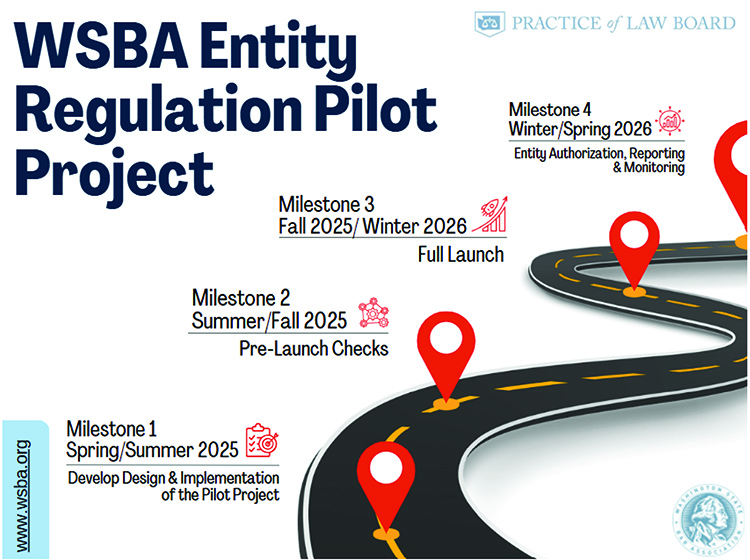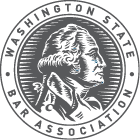Application Portal Open. Learn More.
Why Entity Regulation?
Historically, only individuals licensed by the Washington Supreme Court have been allowed to own law firms, share legal fees, and practice law in the state of Washington. Technology, however, is rapidly transforming our world, and the legal landscape is no exception. Online companies and innovative business models are already delivering legal services to the public and will undoubtedly expand in prevalence and sophistication in the coming years.
Recognizing the profound implications of these changes and to better understand the opportunities and threats presented by emerging technologies — in terms of safety, quality, and access to legal help for Washingtonians — the Washington Supreme Court, the WSBA, and Practice of Law Board (POLB) will operate a pilot test of entity regulation.
What Does Entity Regulation Mean?
For the first time, entities with innovative business models (including those operated by individuals not licensed to practice law) can apply to offer legal services under timebound, limited exemptions from the otherwise applicable rules governing the practice of law. At the end of the pilot, the Court will consider the accumulated data to determine whether to move forward with more permanent regulatory reforms.
The pilot test is the beginning of a process, not the end; the goal is to learn more and make transparent, data-driven decisions before any permanent regulatory reform is put in place.
Pilot Project Timeline
Applications Open
October 2025: Preparing for Pilot Test
The WSBA and the Practice of Law Board continue to work diligently to ensure the required technology, procedures, and administrative processes are in place for a successful implementation of the pilot to test entity regulation this fall. More information including application materials, compliance requirements, and enforcement procedures will be posted soon.
April 2025: Development Begins
Following the Supreme Court Order, the WSBA and Practice of Law Board are partnering to develop the pilot project ‘ecosystem’ for this new initiative. Pilot Project ‘ecosystem’ refers to the organization and development of several interconnected processes that must be addressed prior to the launch of the pilot; ‘launch’ referring to when WSBA will begin to accept applications. The development of this project is underway with more information to be posted regularly.

December 2024: Supreme Court Order
The Washington Supreme Court entered an order authorizing a timebound, data-driven test of entity regulation. The pilot will allow successful applicants to practice law under timebound, limited exemptions from otherwise applicable court rules and statutes governing the practice of law in Washington. Under Order 25700-B-721, the Washington State Bar Association and the Practice of Law Board will collaborate to implement and run the pilot under the supervision of the Supreme Court.
Please send all inquiries to entityregulationpilot@wsba.org.






